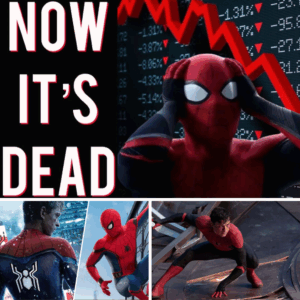Will Smith, the iconic actor and rapper, has found himself at the center of a firestorm following the release of a promotional video for his Based on a True Story tour. The clip, shared on his official YouTube and Instagram accounts, was meant to showcase the energy and adoration of fans at his recent European and UK concerts. Instead, it has sparked widespread outrage, with fans and critics accusing Smith of using artificial intelligence (AI) to fabricate or enhance crowd footage, leading to what many are calling an “embarrassing” and “pathetic” attempt to inflate the success of his comeback tour. The controversy, which erupted in late August 2025, has not only reignited debates about authenticity in the entertainment industry but also cast a shadow over Smith’s efforts to reclaim his cultural relevance.
A Tarnished Return to Music
Will Smith, once celebrated as the Fresh Prince of Bel-Air and a chart-topping rapper, has been navigating a challenging chapter in his career. His 2022 Oscars incident, where he slapped comedian Chris Rock, left a lasting dent in his public image, and his recent foray back into music has struggled to recapture the magic of his 1990s heyday. His latest album, Based on a True Story, released in March 2025, marked his first studio effort in nearly two decades. However, the album received lukewarm reviews, criticized for its generic lyrics and lack of the charisma that once defined hits like “Summertime” and “Gettin’ Jiggy Wit It.” The accompanying tour, which kicked off in Europe and recently hit the UK, was supposed to be a triumphant return, showcasing Smith’s enduring appeal as a live performer.
The controversial video, posted on August 12, 2025, was captioned, “My favorite part of tour is seeing you all up close. Thank you for seeing me too.” It features a montage of Smith performing his new single “You Can Make It,” interspersed with shots of ecstatic fans waving signs and cheering. At first glance, the footage paints a picture of a packed, passionate crowd, with signs proclaiming love for Smith and even claiming his music helped fans overcome personal struggles, such as surviving cancer. But as viewers scrutinized the clip, they quickly noticed something off: distorted faces, extra fingers, and signs with garbled text like “Lov U Fr6sh Crince.” These visual anomalies, hallmarks of AI-generated imagery, sparked a viral backlash that has left Smith’s reputation reeling.
The AI Crowd Controversy
The video’s uncanny elements—blurry faces, six-fingered hands, and signs with nonsensical text—set off alarm bells across social media. Fans and commentators on platforms like YouTube, Reddit, and X pointed out the telltale signs of generative AI, accusing Smith’s team of either fabricating entire crowd scenes or heavily editing real footage to exaggerate attendance and enthusiasm. One particularly jarring shot shows a fan holding a sign that reads, “‘You Can Make It’ helped me survive cancer. THX Will,” but the man’s knuckles appear to blur into the sign, and a woman’s headband in the background inexplicably merges with her wrist. Another clip features a sign reading “From West Philly to West Swig̴̙̕g̷̤̔͜y,” a distorted mess that fans mocked as “AI slop.”
Social media reactions were brutal. One user commented, “Imagine being this rich and famous and resorting to fake AI crowds. Tragic, man. You used to be the Fresh Prince.” Another wrote, “This is an abomination—low-quality footage upscaled with AI to look like a packed concert. Why not just hire a real videographer?” The criticism wasn’t limited to fans; industry observers weighed in, with one calling the video “a new low for authenticity in entertainment.” Some speculated that the footage was real but poorly enhanced using AI upscaling tools, possibly by YouTube’s automated processing, which has been known to add a “plastic sheen” to videos. However, the consensus among viewers leaned heavily toward deliberate manipulation, with many accusing Smith of trying to mask a lackluster tour.
The controversy was amplified by reports that Smith’s tour, while drawing decent crowds in some venues, hasn’t matched the sold-out frenzy depicted in the video. A user claiming to have attended a concert in Frankfurt noted that the venue was only half full, with premium seats sparsely occupied. “His social media makes it look like Beatlemania, but the reality was sad,” they wrote. This discrepancy fueled speculation that Smith’s team used AI to create the illusion of a packed, adoring audience, a move that many fans found insulting. “It’s disrespectful to real fans and even worse if they faked a cancer survivor’s sign,” one commenter raged.
A Broader Context of AI Missteps
The backlash against Smith’s video comes at a time when AI’s role in entertainment is under intense scrutiny. The music industry has seen a surge in AI-generated content, from fabricated songs uploaded to Spotify under the names of deceased artists to AI-enhanced visuals at concerts. Just months ago, rock legend Rod Stewart faced criticism for screening an AI-generated tribute video featuring the late Ozzy Osbourne alongside other deceased musicians, which one fan called “tasteless.” Similarly, a Netflix attempt to upscale classic shows with AI led to distorted character appearances, drawing ire from viewers. These incidents highlight a growing tension: while AI offers powerful tools for content creation, its overuse or misuse risks alienating audiences who crave authenticity.
For Smith, the timing couldn’t be worse. His Based on a True Story tour was already fighting an uphill battle to win over skeptics after the album’s poor reception. The AI controversy has only deepened perceptions that Smith is struggling to connect with modern audiences. Posts on X have been particularly harsh, with one user joking, “Fresh Prince of AI—Will Smith’s out here faking crowds like he’s faking his comeback.” Others have pointed to his past controversies, including the Oscars slap and rumors of financial troubles, as evidence of a star in decline. “He’s got mansions to pay for, so I guess AI crowds are cheaper than real ones,” one critic quipped.
The Fallout and Ethical Questions
The video’s fallout raises broader questions about the ethics of AI in entertainment. While some defend the use of AI as a creative tool for enhancing visuals, others argue that it undermines the trust between artists and their fans. The lack of transparency in Smith’s video—neither YouTube nor Instagram versions were labeled as containing AI-generated content—has fueled accusations of deception. YouTube’s recent experiments with automatic upscaling, which can introduce artifacts like those seen in Smith’s video, have added to the confusion, but many believe the distortions go beyond simple processing errors. “This isn’t just upscaling gone wrong; it’s a deliberate attempt to fake a vibe,” one Reddit user argued.
Smith’s team has yet to issue an official response, leaving fans to speculate about the intent behind the video. Some believe the AI elements were an ill-advised attempt to polish low-quality footage, while others suspect a more calculated effort to exaggerate the tour’s success. Either way, the optics are disastrous for Smith, who has spent years trying to rebuild his image. The controversy has also sparked calls for greater regulation of AI in media, with fans and analysts urging celebrities to disclose when such tools are used. “If you’re going to use AI, own it,” one commenter wrote. “Don’t try to pass it off as real and expect us not to notice.”
Can Will Smith Recover?
Despite the backlash, Smith’s tour continues, with upcoming shows in Manchester, London, Wolverhampton, and Paris. Reports suggest that attendance at these concerts remains strong, with thousands turning out to see the star perform hits from his storied career alongside new material. However, the AI controversy threatens to overshadow these efforts, reinforcing narratives that Smith is out of touch or desperate to reclaim his former glory. His emotional breakdown during a Las Vegas show earlier in 2025, where he was seen crying on stage, already hinted at the pressure he’s under, and the current scandal only adds to the perception of a star grappling with relevance.
There’s still a chance for Smith to turn the narrative around. His charisma and talent remain undeniable, and his fanbase, while shaken, includes loyal supporters who cherish his contributions to music and film. A transparent acknowledgment of the AI controversy, coupled with a return to authentic, high-quality content, could help rebuild trust. For now, though, the viral video has left a stain on his comeback, with memes and jokes about “AI crowds” dominating online discourse. One X post summed it up: “Will Smith went from ‘Parents Just Don’t Understand’ to ‘Fans Just Don’t Look Human.’”
Conclusion
The Will Smith AI crowd controversy is a stark reminder of the pitfalls of embracing technology without considering its impact on authenticity. What started as a promotional video meant to celebrate Smith’s connection with his fans has instead become a lightning rod for criticism, exposing the fragile state of his public image. As AI continues to reshape the entertainment landscape, artists like Smith must navigate its use carefully, balancing innovation with the trust of their audience. For now, the Based on a True Story tour marches on, but the specter of “fake fans” looms large, threatening to drown out Smith’s attempt to reclaim his place in the spotlight. Whether he can swing back from this latest misstep remains to be seen, but one thing is clear: in the age of AI, authenticity is more valuable than ever.





